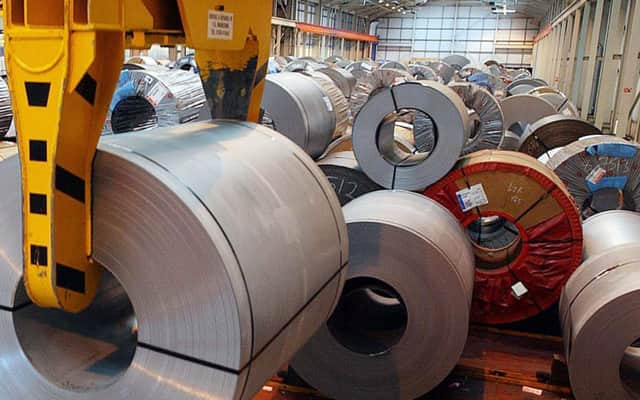UK manufacturing shrank after Brexit vote, says survey


The closely-watched Markit/CIPS UK Manufacturing purchasing managers’ index fell to levels last seen in February 2013 as it hit 48.2 in July, down from 52.4 in June and below economists’ expectations of 49.1.
A reading above 50 indicates growth.
The result will heap further pressure on the Bank of England to hand the UK economy a fresh dose of monetary stimulus this Thursday. The survey showed that the manufacturing sector had slipped even further since the flash UK manufacturing PMI published towards the end of last month, when it fell back to a 41-month low of 49.1 in July.
Advertisement
Hide AdAdvertisement
Hide AdIt also found that the rate of job losses across the sector was its second sharpest for almost three-and-a-half years.
Rob Dobson, the senior economist at Markit, said the downturn was industry-wide with output scaled back across firms of all sizes.
“The pace of contraction was the fastest since early 2013 amid increasingly widespread reports that business activity has been adversely affected by the EU referendum.
“The drops in output, new orders and employment were all steeper than flash estimates.”
Advertisement
Hide AdAdvertisement
Hide AdHe added: “The weakening order book trend and upswing in cost inflation point to further near-term pain for manufacturers.
“On that score, the weak numbers provide powerful arguments for swift policy action to avert the downturn becoming more embedded and help to hopefully play a part in restoring confidence and driving a swift recovery.”
There was some reprieve for the manufacturing industry as the slump in the value of the pound continued to help UK exports.
The survey said the level of new export orders ticked up for the second successive month in July, as companies also pushed to secure contracts.
Advertisement
Hide AdAdvertisement
Hide AdHowever, it said the boost to exports was “less marked than previously estimated” due to sluggish overseas demand.
It said the fall in manufacturing production was its steepest since October 2012, while employment across the industry dropped for the seventh straight month.
The shedding of staff was linked to the slide in output, with restructuring, redundancies and outsourcing all leading to job cuts, the survey said.
It added that purchase price inflation notched up to a five-year high last month, as the fall in sterling, coupled with a rise in metal and commodity prices, drove up import costs.
Advertisement
Hide AdAdvertisement
Hide AdDavid Noble, group chief executive officer at the Chartered Institute of Procurement and Supply (CIPS), said: “After seven months of modest drops, employment figures showed an entrenchment in uncertainty with a sudden deterioration – the second sharpest drop in almost three-and-a-half years, as businesses chose redundancy and restructuring to secure themselves against more possible bad news ahead. Without new orders coming through, this downward trajectory is likely to get worse, at least in the short term.”
The Bank’s Monetary Policy Committee is widely expected to slash interest rates this week, after a string of surveys showed a marked slowdown in the UK economy.